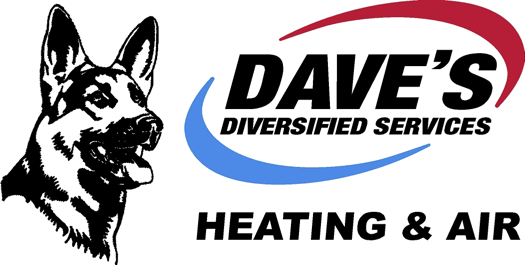
To combat increasing energy expenses and embrace sustainability, many homeowners are trying new methods to maintain comfort levels while using less energy. Included in the Inflation Reduction Act, federal tax credits are available for upgrading to more efficient HVAC systems, such as air conditioners. These credits offer a big chunk of the installation costs, as long as the homeowners use qualifying equipment and submit the appropriate form.
If you’re concerned the application process might be tedious, we can share something that will help! Dave's Diversified Services hopes this guide will give you what you need to secure 2024’s HVAC tax credits. Here’s what you should know.
Understanding the HVAC Tax Credits
These valuable tax credits for boosting your home’s energy efficiency are just one intended use of the recent Inflation Reduction Act. Energy costs affect everyone, so helping homeowners upgrade to higher efficiency utilities can benefit everyone. The primary goal of these credits is to mitigate costs associated with installation and renovation projects. Of particular importance are the Residential Clean Energy Credit and the Energy Efficiency Home Improvement Credit.
But remember, to apply for the credits, you’ll have to complete IRS Form 5695. Additionally, this form has to be submitted for the same tax year the upgrades were installed, not bought.
Maximizing Savings with the Energy Efficiency Home Improvement Credit
Through 2032, the Energy Efficiency Home Improvement Credit provides up to $3,200 each year for making your home more energy-efficient. This equals 30% of the total project’s cost. Keep in mind that in order to receive the maximum amount, it means making severel investments. For example, you’ll save up to $2,000 for a new, high-efficiency heat pump. This can be combined with the remaining $1,200 in credits for other eligible upgrades made within the tax year.
While new heat pump installation projects are a great use of the program, high-efficiency furnaces, air conditioners, boilers, and other HVAC systems are still eligible for this tax credit. It will help to confirm the make and model’s energy efficiency rating is high enough for eligibility.
Exploring the Residential Clean Energy Credit
The Residential Clean Energy Credit offers 30% savings on a number of other residential clean energy efficiency projects. Eligibility is restricted to homeowners seeking to update existing or newly constructed homes. While the Home Improvement Credit focuses on utilities and HVAC systems, this credit is instead designed around renewable energy sources like solar and wind energy.
Some key details of this tax credit include requiring the installation project to be finished between 2022 and 2032. But at the same time, homeowners can carry forward excess credit to offset future tax obligations. This is a great way to make things a little easier when investing in renewables.
Additional Qualifications for Energy Tax Credits
Because HVAC systems are one of the biggest expenses on your energy bill, these tax credits can guide you to the most energy-efficient options. But home energy efficiency can be improved in many other ways. Apart from the previously listed HVAC upgrades, {you could also choose|other eligible items include|you also have access to:
- Heat pump water heaters
- Modern electrical panel improvements
- Upgraded electrical wiring
- Enhancements to insulation, air sealing, and ventilation
- High-efficiency electric stoves, cooktops, ranges or ovens
- Efficient heat pump clothes drying solutions
- High-efficiency water boilers
Just like with installing one or more HVAC systems, you’ll need to verify that your preferred make and model features the eligible energy efficiency ratings.
Maximizing Your 2024 HVAC Tax Credits: Top 3 Tips
While any of these upgrades can enhance your home's energy performance, some planning ahead will ensure the best chance at more long-term benefits. Get the most from your HVAC tax credits with these reminders:
- Conduct a home energy audit to identify impactful upgrades. Rely on professional HVAC assessments for crucial advice.
- Enhance your home's envelope by addressing inefficient windows and doors.
- Explore potential rebates from utility companies for clean energy upgrades. Renewable sources like solar, wind, and geothermal contribute to community power grid sustainability.
- Remember to consider financing plans offered by service providers.
Dave's Diversified Services Can Help You Secure HVAC Credits for 2024
Partner with local HVAC professionals like Dave's Diversified Services for eligible serves like energy assessments or new installation. Our seasoned installers will deliver everything you need for home energy efficiency upgrades.
